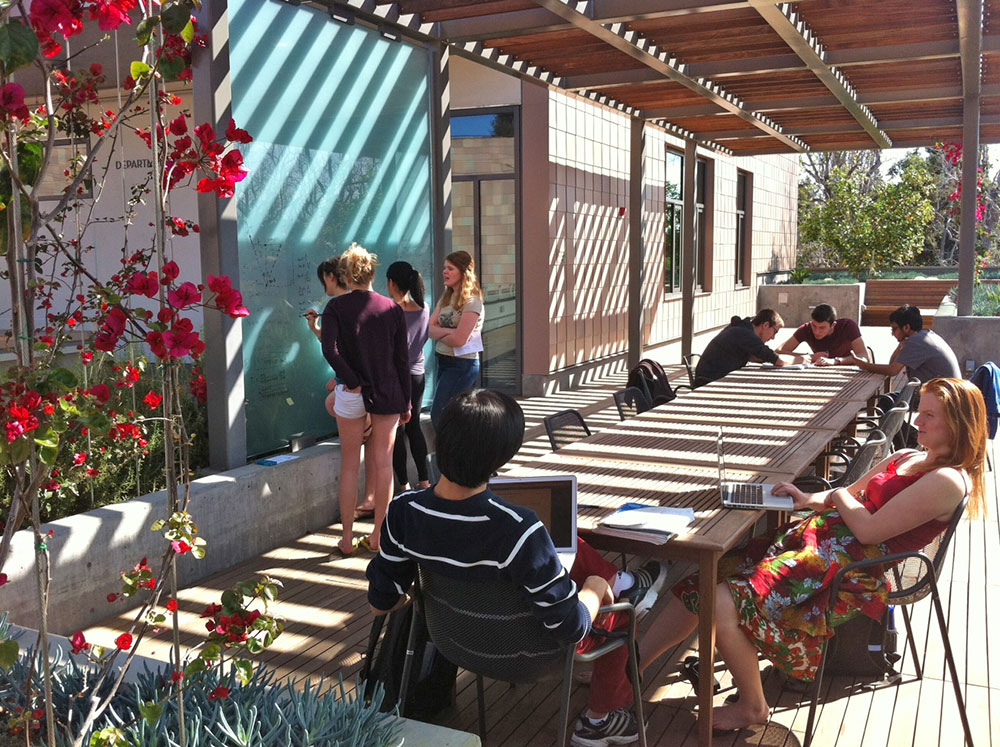Mudd Teams Meritorious at Math Contests
April 3, 2014
For an entire weekend, students commandeer workrooms and collaborate in an intense competition. They work through the night, catching naps at odd hours, leaving only to gather more information, pay for food delivery or use the restroom.
The Mathematical Contest in Modeling (MCM) and Interdisciplinary Contest in Modeling (ICM), held each February, is a tradition at Harvey Mudd College. The competitions give each team of three students 96 consecutive hours to develop a mathematical model to solve a real-world problem and to write a formal paper describing their work. This year, two teams received “Meritorious” honors based on the accuracy, clarity and creativity of their work, while two others were deemed “Successful Participants.”
The MCM and ICM take place concurrently and focus on mathematical modeling in continuous, discrete or interdisciplinary mathematics. This year’s contests included 8,000 teams (high school and undergraduate students) from around the globe.
The MCM challenges students to address a typically open-ended problem, which can range in subject from social science to business to public policy. This year’s MCM problems concerned the Keep-Right-Except-to-Pass driving rule (Problem A) and metrics to predict collegiate sports coaching legends (Problem B).
Three of the four participating Harvey Mudd teams tackled Problem A for the MCM, which asked teams to analyze a common traffic rule in countries where driving on the right-hand side is the norm, suggest a more effective solution and determine how the solution might be implemented in countries where driving on the left is the norm. A sophomore team consisting of Cheng Wai Koo, Matt Wilber and Arthur Chang earned a result of “Meritorious” for its work, as did the team of Joel Ornstein ’14, Sarah Scheffler ’15 and Ben Lowenstein ’16.
Meritorious honors, received by only the top 15 percent of teams, recognize “modeling, problem solving and communication that are exemplary for the scope of the contest.”
A third team consisting of Lucy Gao ’16, Bo Li ’16 and Yantao Wu ’15 received the result of Successful Participant for Problem A.
The only Harvey Mudd team to compete in the ICM this year was made up of Mimee Xu ’15, Martin Loncaric ’15 and Tum Chaturapruek ’14 and was also deemed a Successful Participant. This year’s ICM problem concerned network models of influence in an academic co-author network, based on the collaborative works of mathematician Paul Erdős.
The MCM and ICM contests are renowned in academia for their grueling schedule and focus on ingenuity, collaboration and justification of findings. “Most problems that come up in business, government, or industry are solved by teams, are likely to take many hours and would not be restricted to using only pencil and paper,” says creator Ben Fusaro. “Moreover, the answer must be presented to an executive who wants a clear, understandable response.”
The MCM and ICM are organized by the Consortium for Mathematics and Its Applications (COMAP), a nonprofit organization whose mission is to improve mathematics education for students of all ages and create learning environments where mathematics is used to investigate and model real-world issues.
